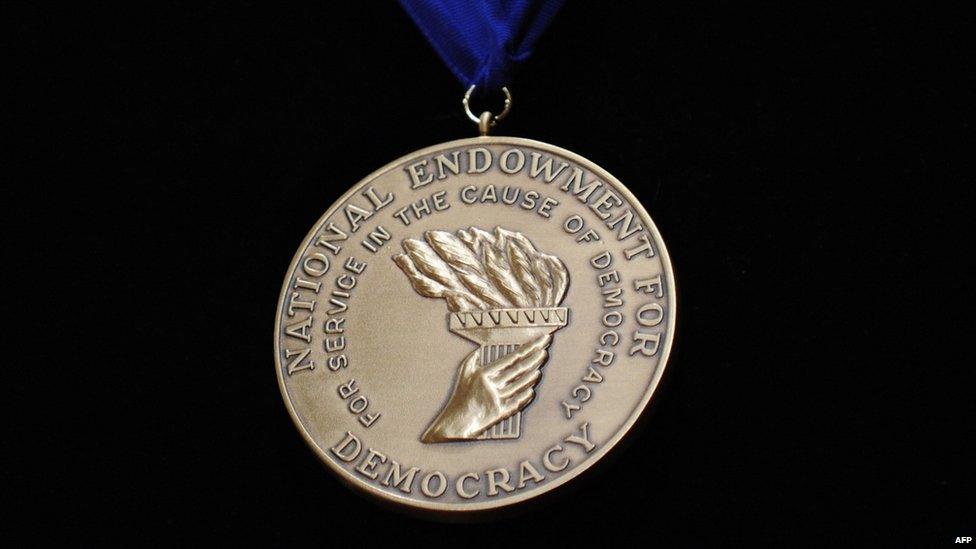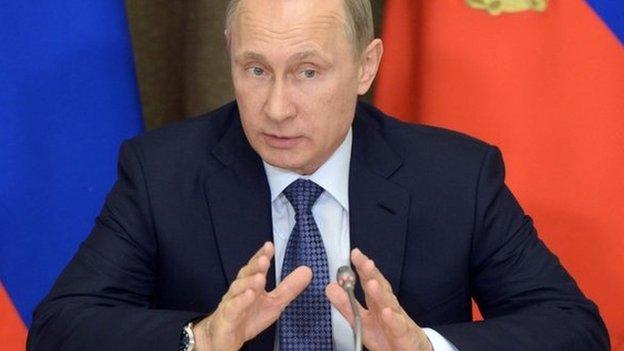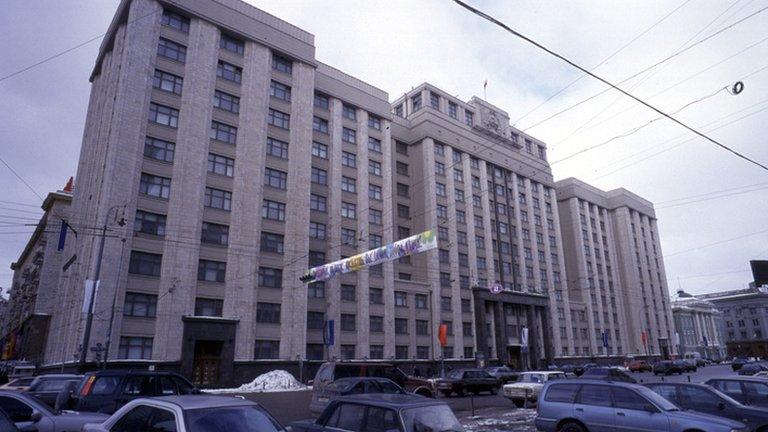Russia warns US as NGO blacklisted as 'undesirable'
- Published

The American NED awards medals for services to democracy
Russia has said it will not tolerate "interference" by foreign organisations after it put a US pro-democracy foundation on a blacklist.
The National Endowment for Democracy (NED), funded by the US Congress, is the first organisation to be labelled "undesirable" under a new Russian law.
Russia's Foreign Ministry warned that "we will never tolerate mentoring and open interference in our affairs by foreign structures".
US officials condemned Russia's move.
The US Department of State called the blacklisting, external "a further example of the Russian government's growing crackdown on independent voices and another intentional step to isolate the Russian people from the world".
Russia's Foreign Ministry hit back , externalby saying the NED's name was "deceptive" because "it is only non-governmental on paper, while in reality it has, from the moment it was set up, received funding from the US budget, including funding via the channels of intelligence bodies".
The ministry said that analysis of NED projects "shows that they are aimed at destabilising the internal situation in countries which pursue independent policies in line with their own national interests, rather than following instructions from Washington".
According to Russian official data, the NED gave financial assistance worth about $5.2m (£3.3m) to various Russian organisations in 2013-2014.
Russians can now face fines or up to six years in prison if they work for a non-governmental organisation (NGO) branded "undesirable".
Critics say it is a Kremlin move aimed at stifling dissent.
NGOs linked to politics in Russia already face restrictions under a 2012 law requiring them to register as "foreign agents".
President Vladimir Putin's United Russia party accuses some foreign governments of using NGOs in Russia as cover to engineer political change.
- Published24 May 2015

- Published19 September 2012

- Published13 July 2012

- Published25 March 2024
